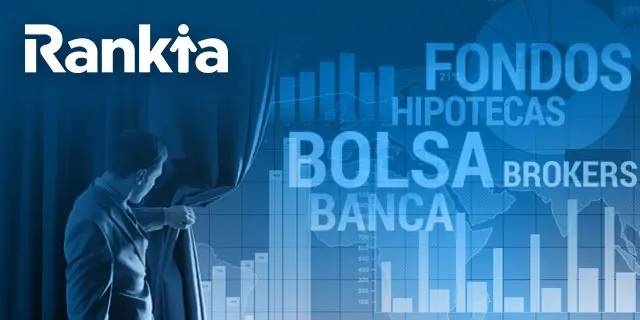Icahn y Blackstone quieren comprar Dell. Icahn es famoso por funcionar como "corporate raider" o "accionista activista" para recuperar empresas y restaurar la bonanza económica de la empresa.
El "corporate raider" se suele caracterizarse por comprar acciones que parecen subvaluadas, hacer remoción de directivos y luego tomar medidas radicales para poner en forma a la empresa otra vez (Corporate Raider). En muchas empresas los directivos toman medidas para hacer que su remoción le cueste mucho a la empresa, tanto en dificultad como en dinero.
Este ha sido el comportamiento de las acciones de dell en los últimos 5 años. ¿Habrá comprado Icahn porque vio un doble suelo en 2009 y 2012?

Esta grafica muestra los tiempos recientes con un poco más de detalle.

Recordemos que el precio no es necesariamente un indicador del estado real de una empresa, sino más bien de las emociones de los accionistas. El pesimismo es explicable por la entrada de las tabletas en 2010, y el aumento de la eficiencia de producción de sus competidores. Dell parece haberse inclinado por la economía de escala y no por la innovación, y ha tenido poca presencia en tiendas minoristas. He aquí algunas noticias del pasado.
January 31, 2007. "They have been suffering from a corporate market slump, and the usual bag of tricks--leveraging the supply chain and their economies of scale--haven't worked." Consumer complaints about customer service, however, began to gather in 2004. For years, Dell managed to convince consumers that it had the lowest-priced PCs on the market. But its price advantage was tied heavily to its ultra-efficient manufacturing process for desktop PCs. That advantage became less important as the market began to shift in favor of notebooks. At the same time, complaints about Dell's service grew as the company began to shift its support technicians to overseas locations. Companies such as Hewlett-Packard and Acer regrouped as well. They took steps to become more efficient, following Dell's lead, and also took advantage of an uptick in retail PC purchases. The decline of PC prices, with the commensurate increases in performance, have also played havoc with Dell's business model, noted Charles Smulders, an analyst at Gartner. Dell for years maintained a strategy of upselling customers, getting them to upgrade processors or memory. Now, Dell is selling cheaper PCs. That has eroded revenue growth and put pressure on margins. "Now, even low-end PCs are able to deliver the performance customers need," he said. "The Achilles' heel has been the precipitous fall of average selling prices in the last few years." - Michael Dell back as CEO; Rollins resigns
April 4, 2009. Michael Dell's reprieve was also aimed at revitalising his employees. He wanted to show them he was listening. Dell denies making an adjustment to his management technique, but does accept that his leadership style is built on collaboration. Dell has been labelled as a business that struggles to innovate, instead relying on supply chain efficiencies to sell established technologies at low prices. Michael Dell disputes this view. "Our global consumer business introduced double the number of products in 2008 than in 2007," he says. But the firm was late, say analysts, to capitalise on netbooks and failed to recognise a growing appetite for MP3 players in time to manufacture a worthwhile challenger to the iPod. - Michael DellFebruary 20, 2013 - Once upon a time, Dell was an innovator. It never invested much in R&D, and its products were unexceptional — it simply bought parts and put them together — but the company’s business model vaulted it to the top of the industry. PCs were expensive at the time, and those who bought them demanded performance. It was a market driven by enterprises and power users, and Dell shook it up by offering to build customized hardware at assembly-line prices. Then prices fell, and kept falling. More consumers could afford a personal computer, and in turn, PC makers began targeting a demographic that preferred portability over power. The market for cheap, mass-produced laptops began to displace the one for custom-built, gray boxes. At this point Dell did what countless other companies were doing, and what conventional wisdom dictated. It closed factories, standardized its product line, outsourced manufacturing to China, and its customer service to India, and the company that got its start by cutting the middle man, now became one. The same year that Dell’s fortunes turned — 2005 — IBM (US:IBM) sold its PC business to Lenovo (HK:992) , a small, Chinese computer maker. In a lot of ways, Lenovo was the anti-Dell. It cultivated close relationships with distributors and retailers, manufactured in-house, and drove growth by selling cheap products at an even cheaper price. - Will Lenovo make things worse for Dell?
25/03/2013. Volverse privada bajaría a la empresa de la lista del mercados de valores y podría aliviar algo de presión sobre Dell . La compañía es rica en efectivo, pero ha visto desplomar sus beneficios, ya que trata de reducir la dependencia de la contracción del mercado de las computadoras personales. - Empresa Dell confirma que Icahn y Blackstone quieren comprarla
Se puede pensar que si estos famosos corporate raiders quieren comprar, probablemente se trata de una empresa con mucho potencial, en la que posiblemente hay que remover a ejecutivos que evitan que la empresa funcione bien. ¿Cuál será la realidad? ¿Están las acciones de Dell subvaluadas en verdad? ¿O le están apostando a una causa perdida?


